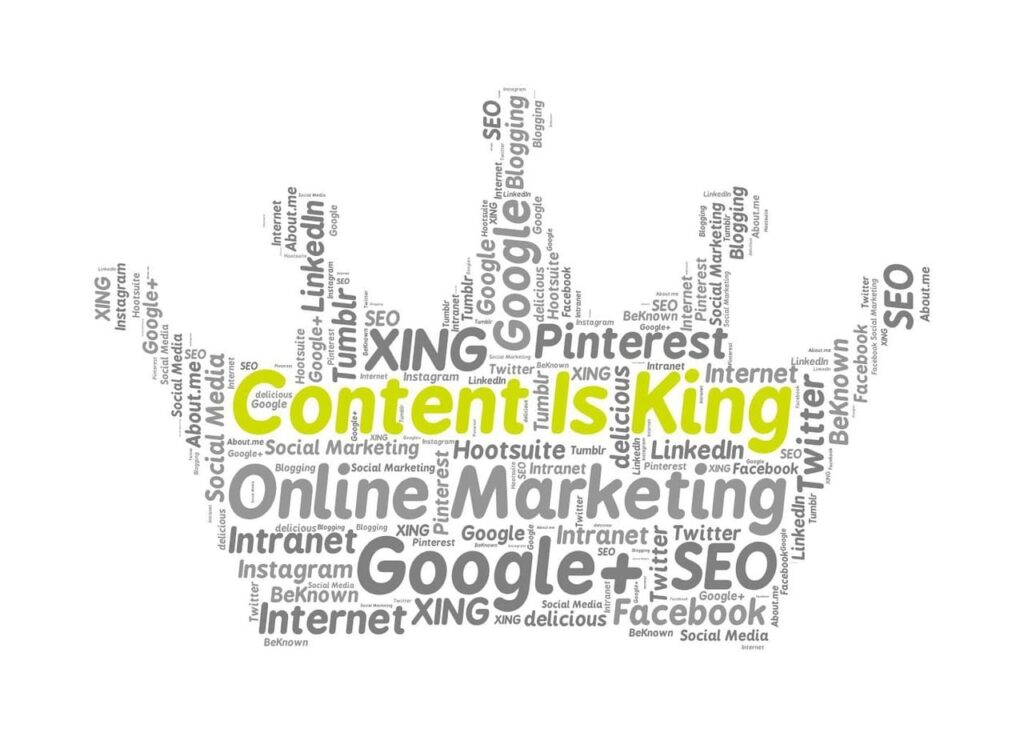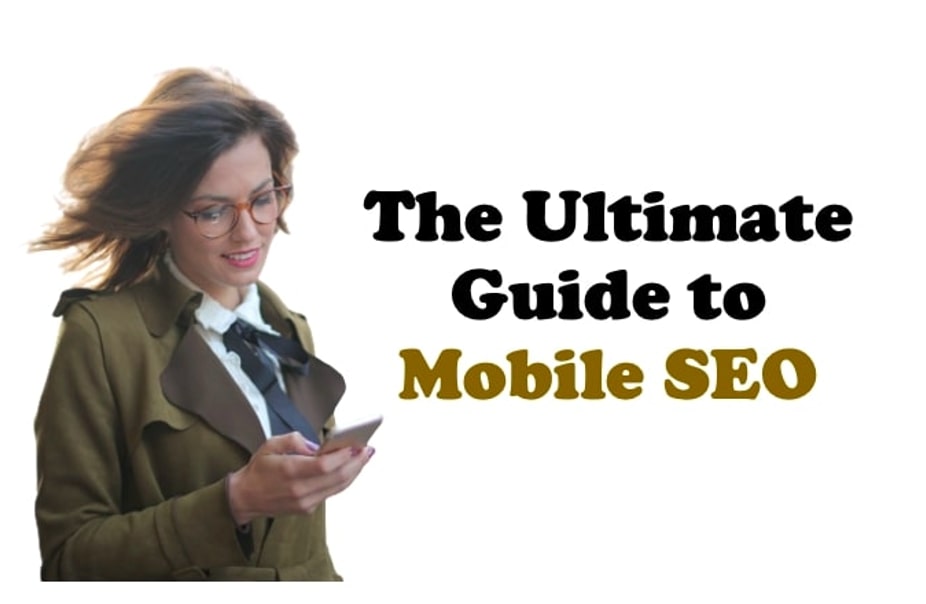Content marketing is a vital component of any successful digital marketing strategy. It involves the creation and sharing of valuable, relevant, and consistent content to attract and retain a clearly defined audience, with the ultimate goal of driving profitable customer action.
In this article, we will discuss four key content marketing opportunities that businesses can take advantage of to reach their target audience and achieve their marketing objectives.
Quick Links
Content Marketing Opportunities
Search Engine Optimization
Search Engine Optimization (SEO) is the process of optimizing your website and content to rank higher in search engine results pages (SERPs).
SEO is a critical component of content marketing as it ensures that your content is visible to your target audience when they search for relevant keywords.
SEO includes both on-page and off-page optimizations such as keyword research, content optimization, and link building.
Social Media Marketing
Social media marketing involves the use of social media platforms to promote your brand, products, or services.
Social media marketing is an excellent way to reach a large and engaged audience, build brand awareness, and drive traffic to your website.
The key to success in social media marketing is to choose the right platforms for your target audience, create engaging content, and build relationships with your followers.
Email Marketing
Email marketing is the process of sending promotional messages or newsletters to a list of subscribers. Email marketing is a highly effective way to nurture leads and build relationships with customers.
With email marketing, you can segment your audience, personalize your messages, and automate your campaigns to ensure that your subscribers receive relevant and timely content.
Influencer Marketing
Influencer marketing involves partnering with individuals who have a large following on social media to promote your brand or products. Influencer marketing is an excellent way to reach a highly engaged and targeted audience, build brand credibility, and drive sales. The key to success in influencer marketing is to identify the right influencers for your brand, create authentic and engaging content, and measure and analyze your results.
Opportunities in Content Marketing
Content marketing has become an essential component of digital marketing in recent years. It involves creating and distributing valuable, informative, and engaging content to attract and retain a target audience.
This form of marketing has opened up numerous opportunities for businesses to reach their customers and establish their brand’s identity. In this article, we will discuss some of the opportunities that content marketing presents.
Building brand identity and awareness
Content marketing provides an opportunity for businesses to establish their brand identity and increase brand awareness. By creating high-quality and informative content, businesses can position themselves as thought leaders in their industry, build credibility, and gain the trust of their target audience. This can ultimately lead to increased brand loyalty and customer retention.
Driving website traffic
Content marketing can drive traffic to a business’s website. By creating valuable and informative content, businesses can attract potential customers to their website, increase the amount of time visitors spend on the site, and reduce the bounce rate. This can ultimately lead to increased conversions and revenue.
Improving search engine rankings
Content marketing can help businesses improve their search engine rankings. By creating high-quality and relevant content, businesses can attract backlinks from other websites, which can improve their website’s authority and ranking on search engine results pages (SERPs). Additionally, search engines prioritize websites that consistently produce high-quality and informative content.
Lead generation
Content marketing can also generate leads for businesses. By providing valuable information and insights, businesses can attract potential customers to their website and capture their contact information through lead magnets such as e-books, whitepapers, or webinars. These leads can then be nurtured through email marketing campaigns, leading to increased conversions and sales.
Establishing thought leadership
Content marketing presents an opportunity for businesses to establish thought leadership in their industry. By providing unique insights and perspectives on industry trends and topics, businesses can position themselves as experts in their field, gain credibility, and attract a loyal following.
Building customer relationships
Content marketing can help businesses build and maintain relationships with their customers. By providing valuable and engaging content on a consistent basis, businesses can keep their customers informed, educated, and entertained. This can ultimately lead to increased customer loyalty and retention.
In conclusion, content marketing presents numerous opportunities for businesses to reach and engage their target audience, establish their brand identity, and increase revenue.
By creating high-quality and informative content, businesses can drive website traffic, improve search engine rankings, generate leads, establish thought leadership, and build customer relationships. As such, it is crucial for businesses to invest in a comprehensive content marketing strategy to remain competitive in today’s digital landscape.
Search Engine Optimization and Content Marketing
Search Engine Optimization (SEO) is a digital marketing strategy that involves optimizing a website’s content and structure to increase its visibility in search engine results pages (SERPs). SEO involves a wide range of techniques that aim to improve a website’s ranking on search engines such as Google, Bing, and Yahoo.
Importance of SEO in Content Marketing
SEO is crucial for any content marketing strategy. With the rise of digital media, more and more businesses are investing in creating high-quality, informative content to attract and engage their target audience. However, if this content is not optimized for search engines, it may go unnoticed by potential readers.
By optimizing content for search engines, businesses can increase their website traffic and improve their brand’s visibility online. This, in turn, can help generate leads and conversions, resulting in a higher return on investment (ROI) for their content marketing efforts.
On-Page SEO
On-page optimization refers to the optimization of the content and structure of a website’s individual pages. This involves a range of techniques, including the use of relevant keywords, meta descriptions, and title tags.
Keywords are the search terms that people use to find information on search engines.
By including relevant keywords in their content, businesses can help their website appear higher in search engine rankings.
Meta descriptions and title tags are also important on-page optimization factors. Meta descriptions are brief summaries of a website’s content that appear in search engine results.
Title tags are the headlines that appear at the top of a website’s individual pages. These should be relevant to the content on the page and include the page’s primary keywords.
Off-Page Optimization
Off-page optimization refers to the optimization of a website’s reputation and authority outside of its own pages. This includes techniques such as link building and social media marketing.
Link building involves acquiring links from other websites to your website. This is important because search engines view these links as a signal of a website’s authority and relevance.
However, it’s important to focus on quality over quantity when it comes to link building, as low-quality links can have a negative impact on a website’s ranking.
Social media marketing involves promoting content on social media platforms to increase visibility and drive traffic back to a website.
This can help increase a website’s authority and relevance, as well as its visibility on search engines.
Opportunities in Content Marketing
There are several best practices that businesses should follow when optimizing their content for search engines. These include:
Conduct keyword research: Before creating content, it’s important to identify relevant keywords and phrases that people are using to search for information related to your business.
Create high-quality, informative content: Search engines prioritize high-quality, informative content that provides value to readers.
Optimize content for readability: Content that is easy to read and understand is more likely to be shared and linked to, which can help improve a website’s ranking.
Use relevant meta descriptions and title tags: Meta descriptions and title tags should accurately reflect the content on a page and include relevant keywords.
Build high-quality links: Focus on acquiring links from authoritative websites in your industry.
Leverage social media: Promote your content on social media platforms to increase visibility and drive traffic back to your website.
In conclusion, SEO is a crucial component of any content marketing strategy. By optimizing their website’s content and structure for search engines, businesses can increase their visibility, attract more readers, and ultimately generate more leads and conversions.
Social Media Marketing & Content Marketing
Social media marketing has become an integral part of digital marketing in recent years. It involves utilizing social media platforms to promote products or services and build relationships with target audiences.
In this article, we will discuss the definition of social media marketing, its importance in content marketing, choosing the right social media platforms, creating engaging content for social media, and building relationships with social media followers.
Definition of social media marketing
Social media marketing refers to the process of utilizing social media platforms such as Facebook, Twitter, Instagram, LinkedIn, and YouTube to promote products or services and build relationships with target audiences.
It involves creating and sharing content on social media platforms to increase brand awareness, drive website traffic, and generate leads and sales.
Importance of social media marketing in content marketing
Social media marketing is essential in content marketing because it provides a platform to promote and distribute valuable, informative, and engaging content to a target audience.
It helps businesses establish their brand identity, engage with their followers, and drive website traffic. Social media platforms provide an opportunity to interact with followers and customers, gather feedback, and build customer loyalty.
Choosing the right social media platforms
Choosing the right social media platforms is crucial for successful social media marketing. It is important to research and understand the demographics of each platform to determine which ones align with your target audience.
For example, LinkedIn is a professional platform suitable for B2B companies, while Instagram and TikTok are more suitable for B2C companies targeting younger audiences.
Creating engaging content for social media
Creating engaging content is essential for social media marketing. The content should be visually appealing, informative, and relevant to the target audience. It is important to use high-quality images and videos, clear and concise messaging, and include calls-to-action (CTAs) to encourage engagement.
Building relationships with social media followers
Building relationships with social media followers is crucial for successful social media marketing. It involves actively engaging with followers by responding to comments and messages, sharing user-generated content, and providing customer support. Building relationships with followers can help establish brand loyalty and increase customer retention.
In conclusion, social media marketing is essential in content marketing, providing an opportunity to engage with target audiences, promote products or services, and build relationships with followers.
Choosing the right social media platforms, creating engaging content, and building relationships with followers are crucial for successful social media marketing. As such, it is crucial for businesses to invest in a comprehensive social media marketing strategy to remain competitive in today’s digital landscape.
Email Marketing and Content Marketing
Email marketing has been around for decades, and it remains a powerful tool for businesses to connect with their customers and promote their products or services.
In this article, we will define and explain email marketing, discuss the importance of email marketing in content marketing, explore the different types of email marketing, and outline the steps involved in an effective email marketing campaign.
Explaining Email Marketing
Email marketing refers to the process of sending promotional messages, advertisements, or newsletters to a list of subscribers via email. This marketing tactic allows businesses to target specific audiences and tailor their messaging to reach those audiences.
Email marketing can be used for a variety of purposes, including promoting products or services, building brand awareness, and nurturing relationships with customers.
Importance of email marketing in content marketing
Email marketing is an essential component of content marketing because it allows businesses to distribute their content directly to their target audience.
By sending newsletters, blog updates, or other valuable content via email, businesses can build trust and credibility with their subscribers, nurture relationships with their customers, and increase brand loyalty.
Additionally, email marketing can drive traffic to a business’s website, increase engagement with their content, and ultimately increase sales and revenue.
Types of Email Marketing
There are several types of email marketing that businesses can use to achieve their goals. These include:
Newsletter Emails: Newsletters are a popular form of email marketing that typically contain updates, announcements, or other valuable content for subscribers. They are usually sent on a regular basis, such as weekly or monthly.
Promotional Emails: Promotional emails are designed to promote a specific product or service. They may include special offers, discounts, or other incentives to encourage subscribers to make a purchase.
Welcome Emails: Welcome emails are sent to new subscribers and are designed to introduce the business and provide information about their products or services.
Abandoned Cart Emails: Abandoned cart emails are sent to customers who have added items to their shopping cart but did not complete the purchase. These emails may include a reminder of the items left in the cart or a special offer to encourage the customer to complete their purchase.
Steps of Email Marketing
An effective email marketing campaign involves several key steps. These include:
Building a Subscriber List: Businesses must first build a list of subscribers who have opted-in to receive emails. This can be done through website opt-in forms, social media promotions, or other marketing efforts.
Segmenting the List: Once the subscriber list is built, businesses should segment their list based on characteristics such as demographics, behaviors, or purchase history. This allows for more targeted messaging and increased engagement.
Creating Valuable Content: Businesses must create valuable and engaging content that resonates with their target audience. This may include blog posts, e-books, or other resources.
Designing the Email: The design of the email should be visually appealing and on-brand. It should also be optimized for mobile devices and include a clear call-to-action.
Sending the Email: Once the email is designed, it is sent to the subscriber list at the appropriate time. The timing and frequency of emails should be determined based on the goals of the campaign and the preferences of the subscribers.
Analyzing Results: After the email is sent, businesses should analyze the results to determine the effectiveness of the campaign. This may include metrics such as open rates, click-through rates, and conversions.
In conclusion, email marketing is a powerful tool for businesses to connect with their customers and promote their products or services. It is an essential component of content marketing, allowing businesses to distribute their content directly to their target audience.
By understanding the different types of email marketing and following the key steps involved in an effective email marketing campaign, businesses can achieve their marketing goals and increase their revenue.
Influencer Marketing and Content Marketing
Influencer marketing has become a popular strategy for businesses looking to expand their reach and connect with their target audience.
In this article, we will define and explain influencer marketing, discuss the importance of influencer marketing in content marketing, explore the different types of influencer marketing, highlight best practices for influencer marketing in content marketing, and analyze case studies of successful influencer marketing strategies.
Definition of Influencer Marketing
Influencer marketing involves partnering with individuals who have a large following and influence over a particular audience. These influencers may be celebrities, experts in their field, or social media personalities. The goal of influencer marketing is to leverage the influencer’s audience to promote a brand, product, or service.
Importance of Influencer Marketing in Content Marketing
Influencer marketing is an important component of content marketing because it allows businesses to reach new audiences and establish credibility with their target market.
By partnering with influencers who have a loyal following, businesses can tap into their audience and create content that resonates with that audience. This can lead to increased brand awareness, engagement, and ultimately, sales.
Types of Influencer Marketing
There are several types of influencer marketing that businesses can use to achieve their goals. These include:
Celebrity Endorsements
Celebrity endorsements involve partnering with high-profile individuals, such as actors or athletes, to promote a brand or product. These endorsements can be costly, but they can also provide significant exposure and credibility for a brand.
Micro-Influencers
Micro-influencers are individuals who have a smaller following, typically between 1,000 and 100,000 followers. While their audience may be smaller, they often have a more engaged and loyal following, making them an effective choice for niche marketing.
Best Practices for Influencer Marketing in Content Marketing
To maximize the effectiveness of influencer marketing in content marketing, businesses should follow these best practices:
Identify the Right Influencers: Businesses should partner with influencers who align with their brand values and have a following that matches their target audience.
Create Authentic Content: The content created for influencer marketing campaigns should be authentic and genuine. Influencers should be given creative control to ensure the content resonates with their audience.
Measure and Analyze Results: Businesses should track and analyze the results of their influencer marketing campaigns to determine their effectiveness and make necessary adjustments for future campaigns.
Case Studies
Glossier’s Influencer Marketing Strategy: Glossier, a beauty and skincare brand, has built a cult following through their influencer marketing strategy. They partner with micro-influencers who align with their brand values and create authentic content that resonates with their audience.
Daniel Wellington’s Influencer Marketing Strategy: Daniel Wellington, a watch brand, has leveraged celebrity endorsements to build their brand. They partner with high-profile individuals, such as model Kendall Jenner, to promote their products on social media.
Final Words
In conclusion, influencer marketing is a powerful tool for businesses looking to expand their reach and connect with their target audience. By partnering with the right influencers and creating authentic content, businesses can build credibility and increase brand awareness.
By analyzing the results of their campaigns and making necessary adjustments, businesses can achieve their marketing goals and increase their revenue.
Sharing is Caring

























